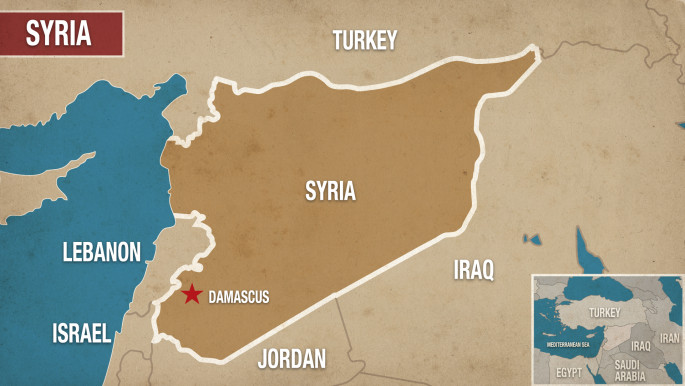Turkey accuses Damascus of breaking Syria truce
Turkey's foreign minister has accused the Syrian regime of violating a ceasefire brokered by Moscow and Washington immediately after it came into effect on Monday evening.
Mevlut Cavusoglu told reporters in the coastal city of Antalya that he hopes all parties will work to make the ceasefire permanent and that efforts "cannot be one-sided".
Earlier on Tuesday, Turkey's military said that it shelled two targets inside Syria after a mortar round fell inside Turkey, minutes after the ceasefire came into effect.
It said the mortar round was fired from Syrian regime-controlled territory.
Cavusoglu stressed that Turkey would work to bring peace to Syria, but would also continue fighting the Islamic State group and Syrian Kurdish rebels it sees as a threat.
Local sources have also confirmed to The New Arab Syrian that the regime violated the truce again on Tuesday afternoon.
Barrel bombs, artillery and machine guns were all directed on the opposition-held town of al-Qarasi in southern Aleppo, as well as Quneitra and the Damascus' suburbs, the sources said.
Local Coordination Committees reported some shelling in Aleppo and the southern region of Quneitra, while state media said there were "breaches" of the truce by rebels in the contested city of Aleppo.
Shortly before the beginning of the truce, the Syrian army announced it would abide by the ceasefire until midnight on Sunday, while maintaining its right to defend itself against any violations.
"The armed forces are continuing their work, relentlessly and without hesitation, regardless of internal or external circumstances," Syrian President Bashar al-Assad said as he toured a former rebel stronghold near Damascus.
Meanwhile, other areas across the country witnessed a calm night during the first day of the truce, which announced by US Secretary of State John Kerry and his Russian counterpart Sergey Lavrov last week in Geneva.
The ceasefire is to be renewed every 48 hours and, if it holds for a week, Moscow and Washington will begin an unprecedented joint campaign to target groups outside the ceasefire - the Islamic State group and Fatah al-Sham, formerly linked to al-Qaeda.
 |
Previous efforts to end the conflict which has killed more than 300,000 people since 2011 have all ended in failure.
A truce in late February collapsed just days after it was announced, when the Syrian regime and Russian air force launched a wave of attacks on Aleppo.
Aid deliveries
The next anticipated step after the truce officially came into effect on Monday is urgent relief deliveries to desperate civilians.
On Tuesday, the UN said it was ready to help civilians but aid convoys would not enter until security was assured.
"We have been mobilising, stockpiling, readying ourselves for this great opportunity to deliver this very urgent aid but we need that peace to be reinstated," UN humanitarian office (OCHA) spokesman Jens Laerke told reporters.
 |
We have been mobilising, stockpiling, readying ourselves for this great opportunity to deliver this very urgent aid but we need that peace to be reinstated. - Jens Laerke |
 |
Laerke said the UN was taking time to assess the truce's durability before it deployed aid to hotspots like east Aleppo.
Since the deal was reached on Friday, "there has been a lot of mobilisation, frantic activity to be able to rush in aid... as soon as it is safe to do so, however, up to this moment, no, the convoys have not been rolling," Laerke said.
"We need to enter into an environment where we are not in mortal danger."
The UN has been given the regime's approval to deliver aid to nearly one million people this month, including to the rebel held eastern part of Aleppo, which has been encircled by pro-Damascus forces.
Monitoring the truce
According to Russian news agencies, the Russian military has deployed a "mobile observation post" to monitor the ceasefire on the key Castello Road heading into Aleppo.
The post was set up "at the entrance" to the city, on the road which provides a vital link to deliver humanitarian supplies to those still living there.
The Castello Road to the north of Aleppo is a key flashpoint that runs to the rebel-held part of the city but has been controlled by Syrian regime forces.
Under the ceasefire deal, the route is meant to be demilitarised, with pro-regime and government forces supposed to pull back in a bid to allow aid to pass through.
On Monday, the Russian army said that Syrian forces were ready to withdraw "simultaneously to" opposition forces, but Russian agencies did not report that the pull-back had started.
The news agencies reported that military observers had also been deployed to the city of Hama.
Russia has been flying a bombing campaign in Syria in support of Assad since last September.
Agencies contributed to this report.


